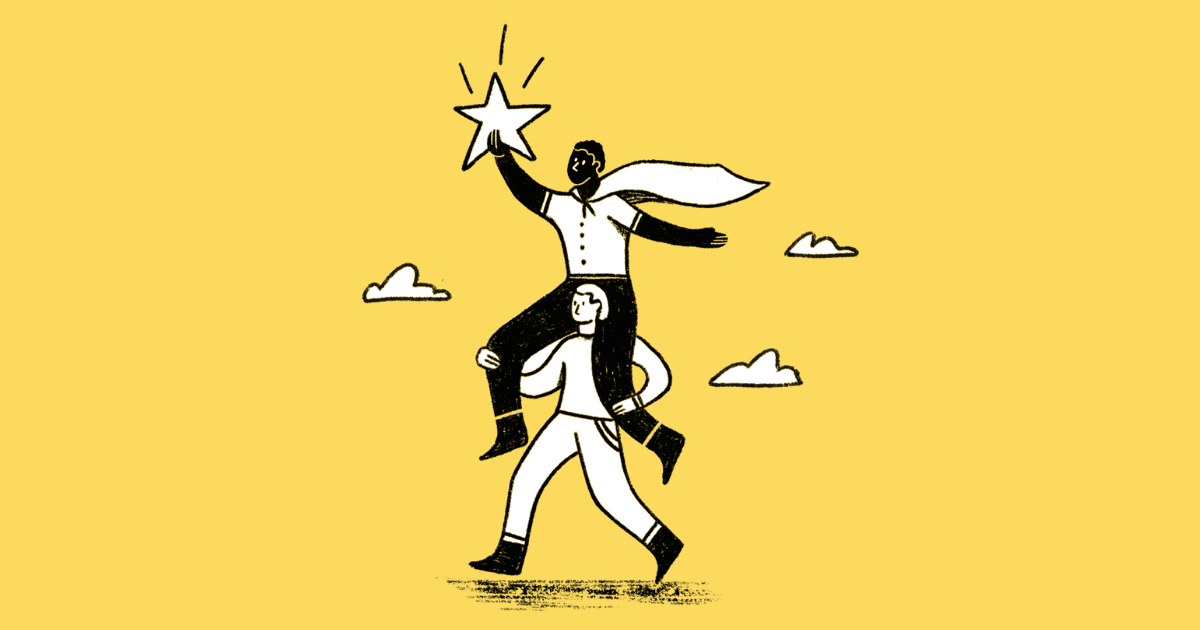
15 December 2025
6 min.
Competence
7 December 2021
4 min.

How well are you able to identify your own strengths? Or do you tend to notice your weaknesses?
The fact is, we all have strengths that are unique to us, and harnessing them can pay off. On the one hand, because it allows us to get ahead in our work, but on the other hand — and this is where it gets interesting — because studies have been able to show positive psychological impacts related to the possibility of using one’s strengths: people who have the opportunity to do so are six times more engaged at work and three times more likely to describe their quality of life as excellent.
Intriguing, isn’t it?
Before we go on, a clarification: focusing on your strengths obviously does not mean ignoring your weaknesses! It is rather a question of seeing how, by a clever mix, one can compensate for them, and put oneself in a posture of development. Another way of looking at it is to see our strengths as anchor points that allow us to maintain a certain balance, despite the turbulence and the unexpected!
How can we distinguish between the strengths we wish we had and those we really have?
It requires a good dose of introspection, certainly, but also a bit of curiosity: what are the strengths that others recognize in us unequivocally? What are the strengths we use in the different spheres of our lives? Are they reflected at work or only in our personal life? Or is it the other way around?
And not all strengths are alike! In their book Now, Discover Your Strengths, Marcus Buckingham and Donald Clifton categorized strengths into four main areas:
Let’s examine them in turn!
Do you communicate your ideas easily? Are you charismatic? Do you make decisions with confidence? These are strengths related to influence, such as the ability to turn ideas into action, to take control of a situation through the power of your presence, or to transform things by maximizing your strengths to achieve excellence.
If you have the ability to generate ideas, to analyze a situation from all angles, to create links between ideas or situations that are not related, your strengths are at the strategic level! These strengths not only allow you to gather and analyze a large amount of information, but also to form a vision of the future that others can rally around.
The strengths that affect the interpersonal aspect of our lives, whether in the professional world or elsewhere, fall under the relational axis. These include empathy, harmony, and connection, but also adaptability, inclusion, and development. These strengths enable the creation of lasting bonds, both in individual and group relationships, so that everyone can be at their best.
Do you have the internal drive to deliver results? Do you have the discipline and focus to get there without getting distracted? The strengths of execution are those that allow us to stay the course, to persevere in spite of obstacles. In short, to be productive!
Knowing and recognizing your strengths is good. Knowing where and how to use them to make a real difference is even better!
Once you have identified your strengths, you can benefit from taking the time to honestly analyze where we are actually putting them into practice. As we mentioned earlier, this may reveal some surprises! And yet, it is by drawing this picture as clearly as possible that you can then seize opportunities to better exploit your strengths in all areas of your lives, not just a few.
When you remember the positive effects that the proper use of your strengths can have, not only at work but also beyond, why do without it? And if the effects on an individual level are undeniable, they are just as important on a collective level. When you feel at your best because you are able to put your strengths forward, when you have the opportunity to shine, you can create a ripple effect for the whole team.
What do you think?
Blog

15 December 2025
6 min.

17 November 2025
8 min.

25 September 2025
5 min.